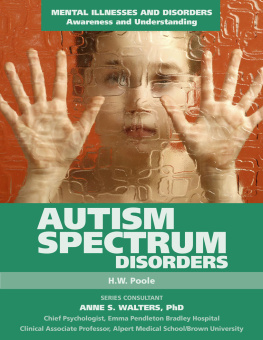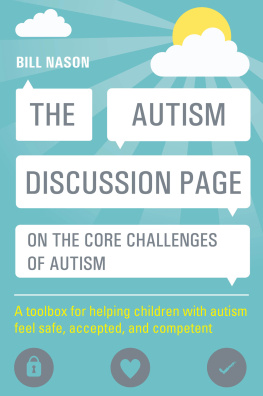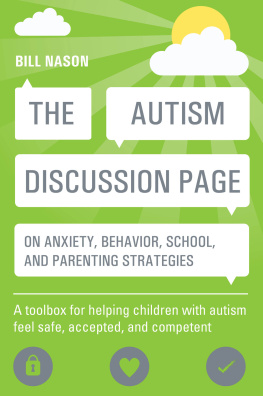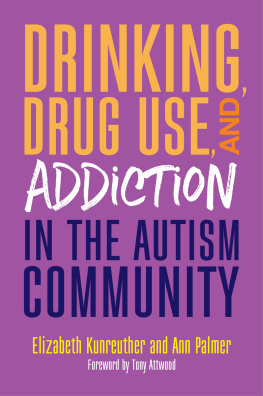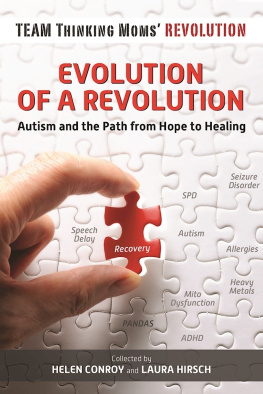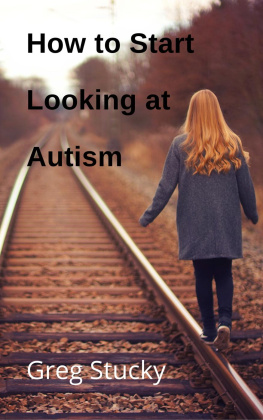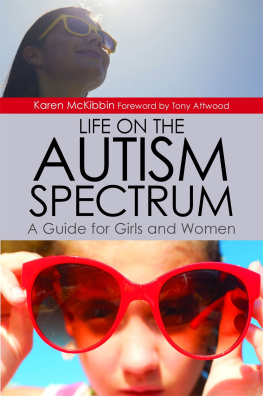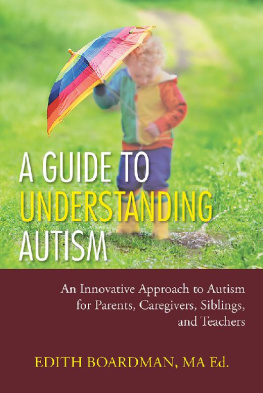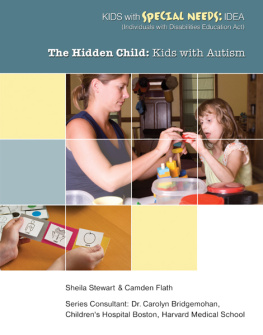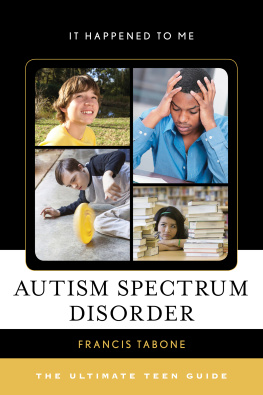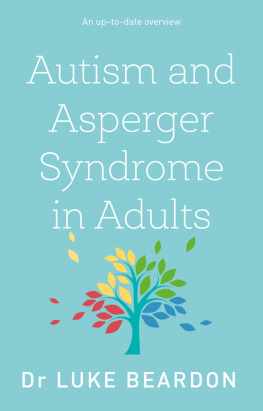I have tried to recreate events, and conversations from my memories of them. Some names, identifying details and places have been changed to protect the privacy of individuals.
I wish to thank the following professionals for their contributions, knowledge and other help in creating this book:
Susan M. Shuman, Editor
Marilee Emerson, M.Ed.
Foreword
From time to time , we are privileged with person-first accounts of individuals with disabilities. It takes both physical and emotional effort to share such personal accounts. Courage, too.
For this reason, I believe it is critical that we read, we listen to, and we learn from these first-person accounts.
Marc Rivera is an Asperger A-lister, a term Marcs editor coined to describe him and others with autism spectrum disorders.
One of Marcs unique talents is his steel-trap memory, which can be both a blessing and a curse. Remembering every experience (like it just happened) can quickly become a burden, especially when your negative experiences outweigh your positive ones.
While being on an A-list may sound cool, it has its disadvantages. Marcs private journal-turned-book captures a snapshot for teachers, parents, students all of us that describe the quiet suffering of a young man who is different.
Dr. Temple Grandin, a well-known A-lister, author, and autism advocate was quoted with this observation about her own differences: Different, not less.
Marcs desire through his school years can be summed up to these simple actions: to be understood, and treated with fairness and respect.
Marcs account of his experiences of being misunderstood, criticized, and living in a state of perpetual anxiety are opportunities for us all to consider (or re-consider) our own interactions with individuals who are different from us.
How would you be portrayed in another persons memoir?
How would an individual who remembers everything remember your actions?
These are two profound questions to consider; for some they may even be a revelation.
I often say, if you havent met someone with autism, chances are you will. Last year, prevalence rates for autism spectrum disorders was 1 in 88. That means statistically, its in our best interest to know a little something about the people who come into our lives, as students, classmates, neighbors and friends.
When Marc and I spoke about his experiences, he agreed when I suggested that every A-lister has shed tears of pain.
What if, by our own interactions with others, we had a chance to reduce the number of tears?
Kindness matters. Marc says this in his book. Its a statement of fact and an observation.
For Marc, it is a prayer.
While Tears of Pain offers teachers, parents and students a learning opportunity, it offers Marc so much more.
Writing this book was a healing journey. Its an invitation to look into the heart of a young man who has struggled to find his place in the world.
As a special educator for 25 years, I recognize the value of first-person accounts. There are still lessons to be learned, voices to be heard, and future hurts to avoid.
Learning to listen may indeed be one of the most important skills we can develop to live in an ever changing, ever diverse world.
Kindness matters.
Marilee Emerson, M.Ed.
Special Educator, Person-Centered Planner
Founder MyMarilee.com
Orlando, Florida
Chapter One
Welcome to my World
Hi! You know me: Im that one kid in class who is well, kind of different. Im smart in a lot of ways, good at math and science. I dont care for sports or fashion, and I dont fit-in anywhere. Im the kid you like to call a nerd, geek, weirdo and Lord knows what else. In school, Im usually the one getting pushed around, teased and bullied for being different. I think a lot of you do that because you are afraid of people and things that are different from you. I dont fit your idea of normal so, therefore, I must be punished. Is that it? Because I sometimes make inappropriate responses, seem nave or immature, and dont get jokes or understand the implications of facial expressionsmeans I am lesser-than, to you, right?
Wrong! I have a condition called Aspergers Syndrome, which is a form of autism. Take note that I said I have Aspergers, it doesnt have me. Its not contagious so you dont have to be afraid of catching it from saying hello to me, or even including me in conversations. My brain is wired differently than yours, thats all it is.
Here is something else you dont know: there are some famous and successful people who have been diagnosed with Aspergers. People like Satoshi Tajiri, the guy who invented Pokmon, Vernon L. Smith, Nobel Laureate in Economics, and Phillipa Pip Brown (aka Ladyhawke), the indie rock star, were all diagnosed with the very same condition I have. Ill bet you wouldnt gang up on those people because they are different, would you?
There are some plusses to being on the Aspergers A-list, by the way. My memory is phenomenal. I am creative, have unique interests, and can easily catch and retain the smallest details. Id make a great friend too, since people with Aspergers tend to be loyal, dependable, and honest. On the other hand, there are some obvious disadvantages to this condition. Its hard for me to discern a lie, I avoid eye contact and dont like hugging. Loud noises freak me out and I have trouble recognizing peoples voice tones and interpreting body language.
Theres no doubt about it. You and I live in two different worlds, but that doesnt mean we cant learn from one another and be friends.
The following pages will describe what life is like on the Aspergers A-List. My hope is to help you better understand what its like to be me.
You are welcome in my world. Please, dont be afraid to let me inside yours.
Chapter Two
Doing Time in Kindergarten
My first real interaction with the outside world was when my parents sent me to a New York day care center. I cried nearly every dayseparation anxiety. I wanted to be home with my grandmother, who took care of me while my parents worked. I became incontinent and refused to eat. Many times, they sent me home at noon, which was fine with me!
One of the teachers, a man, had a loud, booming voice which frightened me terribly. Most kids with Aspergers cant stand loud noises of any kind. Just my luck, I ended up in his room. Thats when things really went haywire! Out of fear, I cried constantly. Nobody understood why, nor did anyone try to find out. I guess they just wrote me off as a crybaby problem child.
They used to do show and tell at the day care center. One of the kids was doing his show and tell. It was a tiny little toy bus and the kid let me play with it. Immediately, it was like if I had formed an instant attachment to it. The people were trying to get me to give the bus back to the boy and I wouldnt give it back. I dont remember if I was crying or not, but I got used to the bus that I wouldnt give it back. Eventually, I gave the bus back to the boy but it was quite an ordeal. I wasnt used to this, I didnt have to deal with anything like that at home.
I didnt like it there at the day care center.


